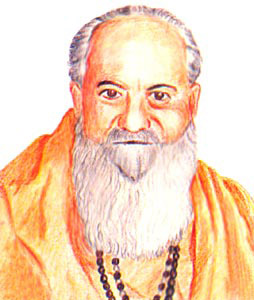 The people of India always consider the famous saint, Swami Ramanand as one of the pioneers of the great Bhakti Movement in the North India. He was a die-hard follower of the great saint; Swami Raghavacharya of the Ramanuj Movement (1017-1137) and the Acharya commanded more respect than even his own Guru, in the later part of his life. Acharya became very famous as an exponent of Rama Bhakti and he was also been regarded as the bridge between the Bhakti Movement of the south and north, in his times.
The people of India always consider the famous saint, Swami Ramanand as one of the pioneers of the great Bhakti Movement in the North India. He was a die-hard follower of the great saint; Swami Raghavacharya of the Ramanuj Movement (1017-1137) and the Acharya commanded more respect than even his own Guru, in the later part of his life. Acharya became very famous as an exponent of Rama Bhakti and he was also been regarded as the bridge between the Bhakti Movement of the south and north, in his times.
Swami Ramanand was born in the year 1400 and the names of his parents were Bhoor Karma and Sushila. He was mystically determined from his early childhood and he decided to leave his home for searching spiritual education at a young age. Ramanand started visiting the religious and places of pilgrimage like Kashi, for getting knowledge about ancient Indian philosophies. After attaining spiritual education and knowledge about the philosophies, he decided to establish his own thoughts and he started to spread and preach his gospel in Kashi.
Swami Ramanand swayed a lot of devotees in Kashi, with the spirit of Bhakti and the popular Indian saint; Kabir was undoubtedly the most renowned amongst the disciples of Swami Ramanand. Ramanand was also a very well learned Pandit and he has written a large number of books. The books like `Sri Vaishnava Motabrij Bhaskar`, `Sri Ramarachan Padhti` are among the most popular ones of his books and they are still available. Apart from the books, one of the hymns of Swami Ramanand has also been included in the Guru Granth Sahib.









